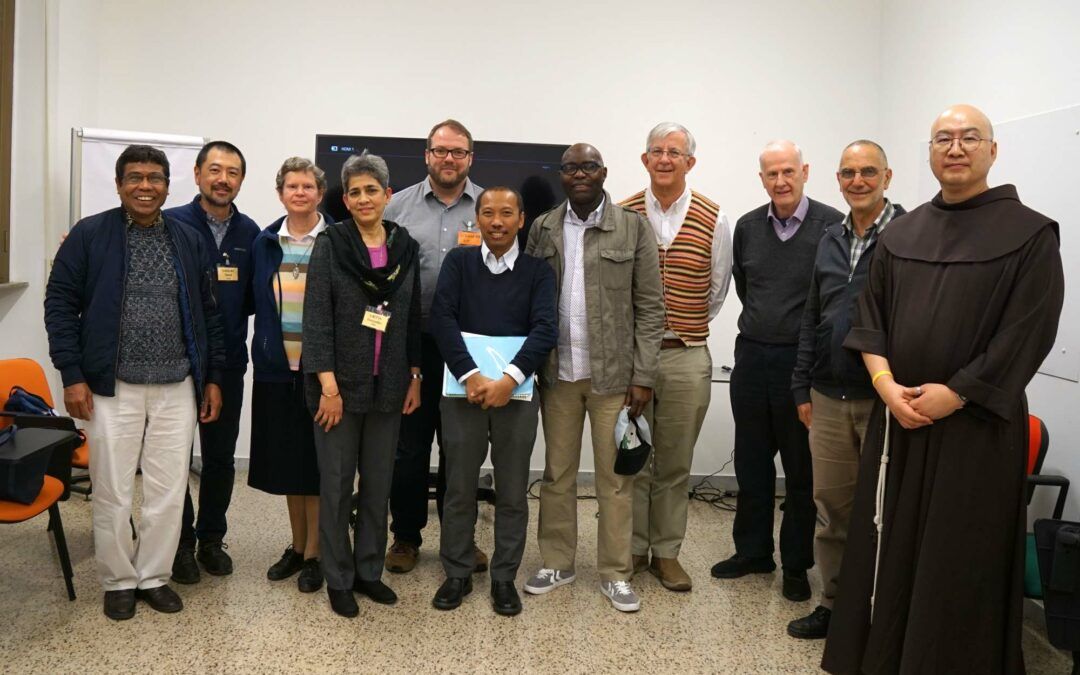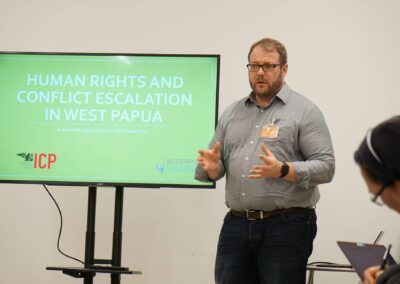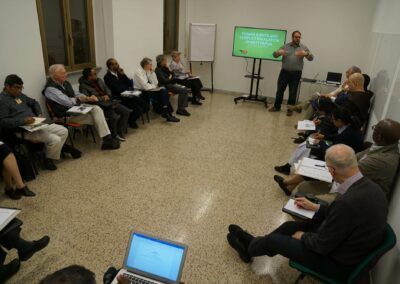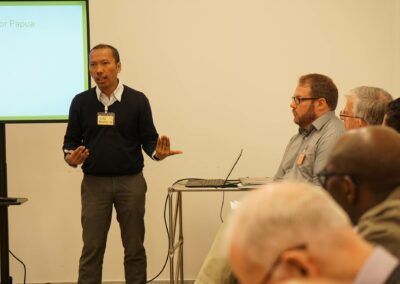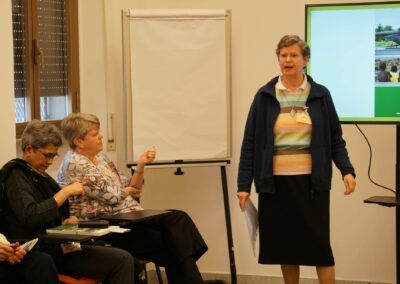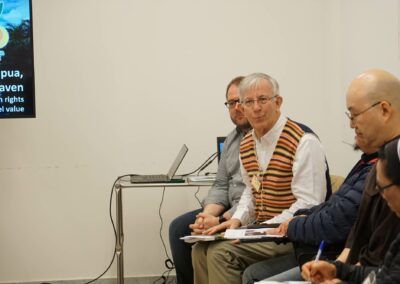The monthly meeting of the English Speaking JPIC Promoters was held on February 19. In this meeting, the West Papua Network in Rome introduced the human rights issues of the indigenous people (native Papuans) in West Papua (two Indonesian provinces in the west half of the New Guinea island).
West Papua Network in Rome is a network of the religious congregations which are present in West Papua. There, the native Papuans have been suffering from serious human rights violations since the end of the Second World War. The Catholic church has been accompanying the indigenous people mainly through the parish, education, and health care ministries. At the same time, the JPIC secretariats of the dioceses and religious congregations have been trying to promote human rights by networking with NGOs and local and national authorities.
Mr. Norman Voß from the International Coalition of Papua (ICP: www.humanrightspapua.org) introduced the recently published bi-annual human rights report of ICP. He focused on the issues of extrajudicial killings, torture, intimidation of human rights defenders, and health. According to the statistics, the situation of these areas is not getting better. For example, the number of reported victims (native Papuans) of extrajudicial killing in the past five years is 2013/8, 2014/12, 2015/14, 2016/6, 2017/10, 2018/23. Mr. Norman shared that because of the migration from other parts of Indonesia and the poor public services on health, education, hygiene, food, etc., the population of indigenous people in West Papua is now less than 40%. The native Papuans worry about their extinction.
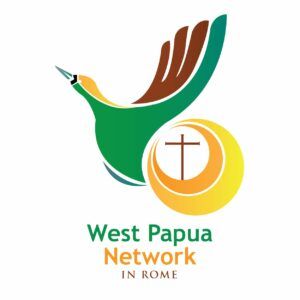
Mr. Budi Tjahjono from Franciscans International informed how the Catholic Church is reacting to the human rights violation at local and international levels. He shared that in West Papua, there is a network of JPIC secretariats of four dioceses and two congregations (Franciscans and Augustinians). This local JPIC network published its three-year human rights report in Indonesian, and the West Papua Network in Rome translated the report into English and published it. FI, together with many other NGOs established by religious congregations, bring the issue to the UN for advocacy actions. Mr. Budi said that the strength of the religious NGOs is the fact that they are linked with the local reality through the presence of religious in the affected areas.
Sr. Elly van Dijk, FDNSC, shared about the importance of promoting interculturality in the religious communities in West Papua. Her congregation has 30 sisters in West Papua, and 10 of them are native Papuans. The Sisters work in schools, hospitals, clinics, and parishes, and are often confronted with human rights issues. Sr. Elly said that it is not easy to talk about human rights since it is a sensitive issue and can quickly become a political debate. But we cannot keep quiet because the dignity of human beings is at stake. She then introduced the mapping project of an MSC Father, which protects the land and empowers the native Papuans.
The participants shared in the end that it will be useful to connect the issue with the outcome of the Amazon Synod as it deals with indigenous and environmental issues.

